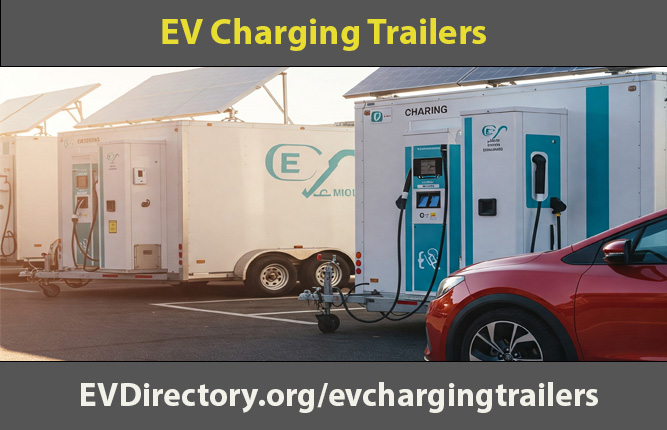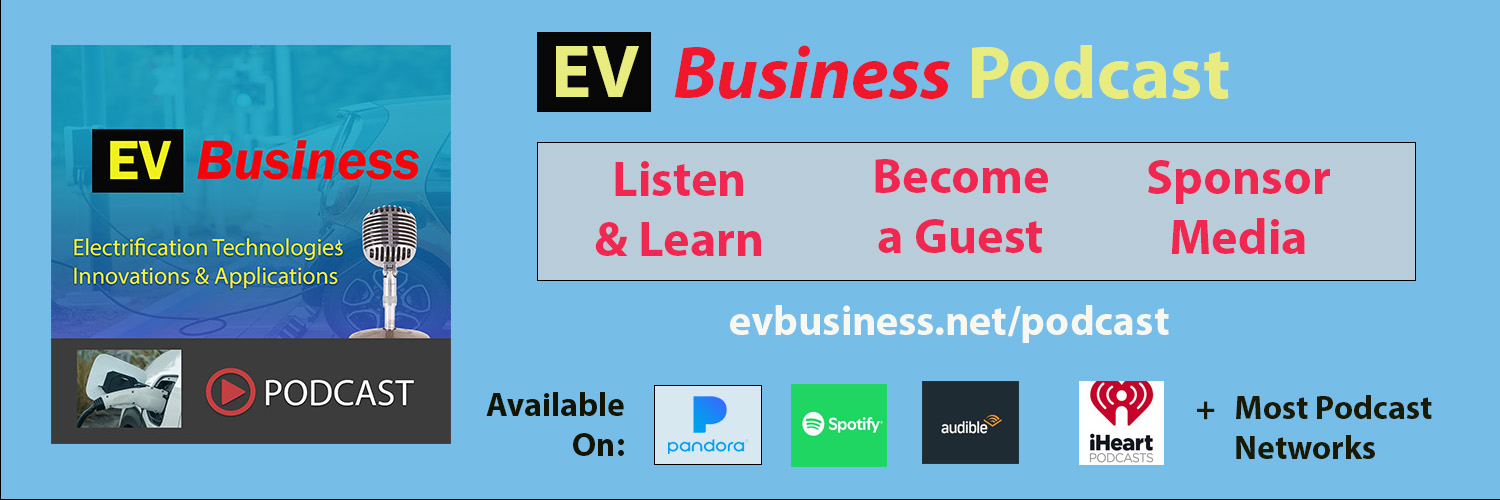EV charging mobile trailers are portable on-demand charging solutions. EV charging trailers address the growing need for flexible and mobile charging solutions in areas lacking permanent infrastructure. These trailers solve key challenges such as limited grid access, slow deployment of fixed stations, and high installation costs. Featuring autonomous operation, they can function with minimal human intervention, making them ideal for remote or high-traffic locations. Onboard battery storage ensures off-grid charging, while high-capacity charging reduces wait times and supports multiple vehicles simultaneously. Customization options, rapid deployment, and smart energy management enhance efficiency and usability. Learn more about EV charging trailers to experience a scalable, portable, and cost-effective charging solution.
EV Charging Trailer Manufacturers

EV Charging Trailer Manufacturers List
Ecokruz – Provides the Blink Portable Level 2 Gas Generator-Powered Mobile EV Charger, a freestanding unit delivering up to 7.7kW of charging power, ideal for emergency roadside assistance.
EVESCO (a division of Power Sonic) – EVESCO provides mobile EV charging stations and portable DC fast chargers with integrated battery storage for various applications.
GoSun – Develops portable solar-powered appliances, including solar EV chargers, promoting sustainability and energy independence for off-grid applications.
Kempower – Kempower provides DC fast-charging solutions for electric vehicles, including movable chargers suitable for various applications.
Life Younger – Produces the iTrailer, a high-capacity mobile energy storage device capable of fast charging electric vehicles, suitable for various applications including emergency roadside assistance.
Lightning eMotors – Provides the Lightning Mobile, a DC fast charging system installed in a van or trailer, supporting fleets of commercial EVs with rapid deployment capabilities.
Mullen Automotive – Introduces the PowerUP mobile EV charging truck, delivering level 2 and level 3 DC fast charging capabilities for various applications including roadside assistance and emergency response.
Pioneer eMobility – Offers off-grid, mobile EV charging solutions that require no permits, electrical upgrades, or on-site construction, suitable for various applications including disaster recovery and fleet operations.
Portable Electric – Offers the Voltstack Mobile EV Charger, a clean energy mobile charging solution designed to meet the demand for off-grid EV fast charging.
RUNASO – Offers a Mobile EV Charging Trailer designed for emergencies and off-grid locations, providing fast, reliable, and scalable EV charging solutions.
SparkCharge – SparkCharge specializes in portable, ultra-fast charging systems for electric vehicles, enabling on-demand charging services.
Tursan – A China-based manufacturer offering a 200kW Mobile EV Charging Trailer with a 215kWh capacity, designed for emergency rescue and electricity support.
Xos Trucks – An American manufacturer of electric commercial vehicles, including medium-duty electric trucks.
EV Charging Trailer Key Features and Capabilities
Autonomous Operation
AI-driven or automated features enable the trailer to operate with minimal human intervention. This allows for self-sustained charging, optimizing energy use and reducing the need for constant monitoring, making it ideal for remote or high-traffic locations.
Battery Storage
Onboard energy storage systems store electricity for off-grid charging or backup power supply. This feature ensures continuous operation even in areas without direct grid access, making the trailer a reliable charging solution in emergencies or temporary locations.
Charging Capacity
The power output (measured in kilowatts) determines how fast the trailer can charge EVs, and the number of vehicles it can serve at once affects overall efficiency. Higher capacity trailers reduce wait times and support more vehicles, improving the usability of mobile charging stations.
Cost & ROI
The initial investment, operational costs, and potential revenue generation impact the financial viability of the trailer. Understanding these factors helps businesses and organizations determine long-term profitability and sustainability.
Customization Options
Mobile EV charging trailers can be customized with branding, modular upgrades, or tailored configurations. This flexibility allows businesses to promote their brand, enhance functionality, and adapt to specific charging needs.
Deployment Speed
Quick setup and easy deployment ensure the trailer can be operational within a short time. This is especially valuable for emergency response situations, special events, or temporary charging needs where rapid availability is crucial.
Durability & Weather Resistance
Trailers designed with robust materials and weatherproofing can withstand harsh environmental conditions, including extreme temperatures, rain, and dust. This ensures long-term reliability and reduces maintenance costs.
Energy Management System
Smart load balancing optimizes power distribution, preventing overloads and maximizing efficiency. This feature is essential for ensuring that the trailer can deliver consistent and effective charging without straining its power source.
Maintenance & Support Services
Availability of technical support, spare parts, and maintenance services ensures the trailer remains in optimal working condition. Regular servicing extends the lifespan of the equipment and prevents unexpected downtime.
Multi-Vehicle Support
Supporting various vehicle types, including cars, trucks, and e-bikes, increases the trailer’s versatility. This makes it suitable for a wider range of users, from personal EV owners to commercial fleets.
Plug Types & Compatibility
Trailers must support multiple charging standards such as Level 2, DC fast charging, CCS, CHAdeMO, and Tesla adapters. Ensuring compatibility with different EVs enhances usability and broadens the trailer’s customer base.
Portability & Mobility
The size, weight, and ease of transportation determine how conveniently the trailer can be relocated. A well-designed mobile unit can be deployed across different locations, making it suitable for events, roadside assistance, or rural charging stations.
Power Source
Compatibility with grid connections, solar panels, or alternative energy sources improves flexibility in different environments. This feature enables charging trailers to function in off-grid locations or reduce reliance on fossil-fuel-generated electricity.
Regulatory Compliance & Safety
Adhering to safety standards such as UL certification, fire suppression systems, and local EV regulations ensures safe and lawful operation. Compliance reduces liability risks and guarantees user protection.
Scalability & Modularity
Expandable designs allow the trailer to integrate with existing charging infrastructure or accommodate additional charging units. This future-proofs the investment by enabling upgrades as demand increases.
Security Features
Anti-theft systems, GPS tracking, and remote shutdown capabilities protect the trailer and its components from theft or unauthorized use. Strong security measures are crucial for high-value mobile assets.
Smart Charging & Connectivity
Remote monitoring, payment integration, and network connectivity provide real-time data access and user convenience. These features allow for automated billing, diagnostics, and performance optimization.
User Accessibility
Charging trailers should be designed for easy access, whether for public users, private businesses, or fleet operations. Features such as ADA-compliant interfaces, intuitive controls, and multiple payment options improve user experience.
User Interface & Display
A touchscreen, mobile app, or interactive display simplifies the charging process and provides real-time charging status updates. A well-designed interface enhances user engagement and reduces confusion for first-time users.
EV Charging Trailer Glossary
Battery Management System (BMS) – A system that monitors and manages battery performance, safety, and longevity in EVs and charging trailers.
Bidirectional Charging (BDC) – A system that allows energy to flow both into and out of an EV battery, enabling V2G, V2L, and V2V applications.
Charging-as-a-Service (CaaS) – A business model that provides EV charging infrastructure and management on a subscription or pay-per-use basis.
Charging Infrastructure Provider (CIP) – A company or organization that develops and maintains EV charging networks and solutions.
Charging Power Output (CPO) – The amount of power an EV charger delivers to a vehicle, measured in kilowatts (kW).
Demand Response (DR) – A strategy where electricity consumption is adjusted based on grid demand to improve efficiency and stability.
Duty Cycle (DC) – The frequency and duration an EV charging trailer operates within a given period, impacting battery life and efficiency.
Electric Vehicle Supply Equipment (EVSE) – Hardware that delivers electrical energy to recharge EVs, including portable and fixed charging stations.
Energy-as-a-Service (EaaS) – A model where businesses or consumers purchase energy solutions, such as EV charging, without owning the infrastructure.
Grid-Tied System (GTS) – An EV charging setup connected to the electrical grid, enabling energy exchange between the charger and utility.
High-Power Charging (HPC) – A DC fast-charging technology that delivers ultra-fast charging at 150 kW or higher, reducing EV charge time significantly.
Idle Fee (IF) – A charge imposed on EV owners who leave their vehicle plugged in after charging is complete, preventing station congestion.
Load Balancing (LB) – The process of distributing electrical load across multiple chargers to prevent grid overload and optimize efficiency.
Peak Demand Charge (PDC) – A fee applied by utilities when energy consumption surpasses a predetermined threshold during peak periods.
Power Distribution Unit (PDU) – A device that manages and distributes electrical power to various components in an EV charging system.
Renewable Energy Integration (REI) – The incorporation of solar, wind, or other renewable sources into EV charging solutions for sustainability.
Smart Charging (SC) – An intelligent system that optimizes charging schedules and power distribution based on grid demand and user preferences.
Total Cost of Ownership (TCO) – The comprehensive cost of purchasing, operating, and maintaining an EV charging trailer over its lifespan.

